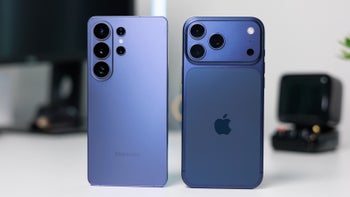As AWS-3 auction passes $44.5b, T-Mobile petitions FCC to protect even more 600MHz spectrum in 2016 auction

T-Mobile is not just aggressive in the market place, but it has been squeezing the best bang-for-the-buck with its lobbying efforts at the Federal Communications Commission.
The bidding in the AWS-3 spectrum auction is still ongoing, but it is slowing down, and when the bidding stops, so does the auction. What an auction is has been thus far too! Bids have accumulated to over $44.5 billion in 139 rounds.
Bidding activity has varied by round and licenses up for grabs at any given point, so it is difficult to gauge when things will settle down. For example, in the latest round of bidding (round 139), $29.8 million was committed. In round 138, only $1.5 million. In the round prior to that, bidding reached $18.8 million. Of course, some markets command more money than others if a carrier wants to make inroads in a particular area.
For those watching from the outside, this spectrum is attracting far more investment than anyone thought. If these licenses (spectrum blocks in 1695-1710MHz, 1755-1780MHz, and 2155-2180MHz) attracted half as much interest, they would have exceeded initial estimates. That means it is a fair bet that the 600MHz auctions set for 2016 could bring in substantially more revenue.
AT&T and Verizon are no doubt the big players in this current auction, even though the FCC does not report active bidders. The two large carriers are expected to be the deep pockets in 2016 as well. However, the arguments have been made that the big wallets of AT&T and Verizon put them in a position to graft all the other players out of the game, and T-Mobile was successful in getting the FCC to adopt rules that would set aside 30MHz of spectrum so that the “big two” could not dominate any single market.
However, unlike the current AWS-3 auction, the rules for the 2016 spectrum sale are far more complex because it requires that the current holders of that spectrum, almost exclusively television broadcast companies, willingly put their licenses up on the auction block. If a broadcaster only gives up 50 or 60MHz of spectrum, then the auction set-aside for smaller companies is only 10 or 20MHz.
For the smaller companies to even begin bidding on the reserved blocks, bidding will need to have reached $1.25-per-MHz-POP in the largest markets first. T-Mobile argues that this model would actually discourage participation and lower overall revenues. That would motivate broadcasters to not sell their licenses at all.
Despite the new rules written in earlier this year, T-Mobile is continuing its efforts to have the FCC “protect” even more spectrum in the next auction, saying that 30MHz is not enough for the smaller companies to bid on and that AT&T and Verizon could still grab the rest of available spectrum and continue their respective market domination.
T-Mobile’s filing with the FCC makes some interesting observations, but the fact remains that no matter how restricted AT&T and Verizon are in the auction, they are still the players with the deepest pockets in the room. Using the 700MHz spectrum auction in 2008 as a yard-stick, AT&T and Verizon have more purchasing power than the other bidding companies combined four-times over. Having seen the writing on the wall for 2016, is it possible that Big Red and AT&T quietly changed their strategy behind the rhetoric?
These spectrum auctions, and the 2016 auction in particular, are meant for carriers to acquire and expand their network capacity and services. They are also intended to reimburse the current license holders, and fund FirstNet, a congressionally mandated national wireless broadband network for first responders.
sources: FCC (1, 2) via FierceWireless
The bidding in the AWS-3 spectrum auction is still ongoing, but it is slowing down, and when the bidding stops, so does the auction. What an auction is has been thus far too! Bids have accumulated to over $44.5 billion in 139 rounds.
AT&T and Verizon are no doubt the big players in this current auction, even though the FCC does not report active bidders. The two large carriers are expected to be the deep pockets in 2016 as well. However, the arguments have been made that the big wallets of AT&T and Verizon put them in a position to graft all the other players out of the game, and T-Mobile was successful in getting the FCC to adopt rules that would set aside 30MHz of spectrum so that the “big two” could not dominate any single market.
For the smaller companies to even begin bidding on the reserved blocks, bidding will need to have reached $1.25-per-MHz-POP in the largest markets first. T-Mobile argues that this model would actually discourage participation and lower overall revenues. That would motivate broadcasters to not sell their licenses at all.
T-Mobile’s filing with the FCC makes some interesting observations, but the fact remains that no matter how restricted AT&T and Verizon are in the auction, they are still the players with the deepest pockets in the room. Using the 700MHz spectrum auction in 2008 as a yard-stick, AT&T and Verizon have more purchasing power than the other bidding companies combined four-times over. Having seen the writing on the wall for 2016, is it possible that Big Red and AT&T quietly changed their strategy behind the rhetoric?
sources: FCC (1, 2) via FierceWireless
Follow us on Google News














Things that are NOT allowed:
To help keep our community safe and free from spam, we apply temporary limits to newly created accounts: